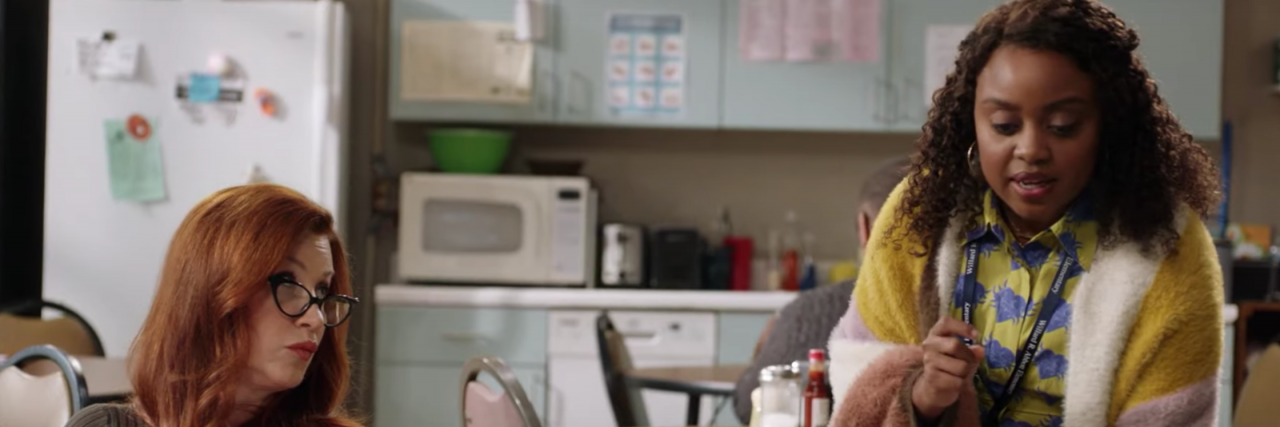I Didn't Realize How Not Being a 'Gifted Child' Traumatized Me, Until I Watched 'Abbott Elementary'
Editor's Note
This is a recap for “Abbott Elementary” Season 1 Episode 6. There will be spoilers beyond this point. Please proceed with caution (because we don’t want to be the ones who spoil you!)
Growing up, I was always told I was bright – I just needed to apply myself.
Early in my school years, I coasted, not having to work super hard to get good grades. However, as time continued, my unknowingly neurodivergent brain had a harder time adjusting.
By the time I was in high school, I was surrounded by privileged kids who all earned straight A’s, and excelled in the areas of school I struggled to keep up with. I tried my hardest, but I was always reduced to tears when the best I’d achieve was a C, knowing I spent all night studying and doing what I could, only to then be told “You just need to try harder.”
Other relevant stories:
• Can You Get a Service Dog for ADHD?
• Are People With ADHD Smarter?
• Can ADHD Go Away?
• What is ADHD?
I would watch my friends, every single quarter, go up and receive their awards for making “Heads List.” While happy for them, it was hard watching them excel and be propped up while I sat in the stands feeling inadequate. They worked their butts off, and I don’t discount that, but it was dismaying seeing everyone around you be supported and loved for being “special” and “gifted,” and you were just…you.
I still had a solid 3.0 GPA, but that felt like a failure next to all of them. Add in my attention-deficit/hyperactivity disorder (ADHD) lurking in the background, I just felt lost. My confidence was at an all time low, and it would take years to build it up. I just wanted to feel “special”, but instead I felt “stupid,” and eventually I stopped trying because I didn’t see the point. I didn’t apply to any state or non-art based universities because I didn’t think I’d get in, and it would only then confirm I wasn’t “smart” or “special” like all my other friends and adolescent colleagues. While my confidence is now high and I love myself and my brain now, I didn’t for a long time solely because I wasn’t “gifted” like everyone else.
For the first time, I heard my perspective in the newest episode of the ABC smash sitcom “Abbott Elementary.”
Warning: There will be spoilers for Season 1, Episode 6 of “Abbott Elementary.” If you do not want to be spoiled, turn back now (and maybe go watch it on Hulu, because it’s such a spectacular show).
In this episode, Janine Teague (Quinta Brunson) campaigns to start a gifted child program to help give extra attention to students who are excelling academically. History teacher, Jacob Jill (Chris Perfetti) agrees to teach it, and has a blast teaching this select group of students, yes, through song at times.
Other children start feeling left out, and Janine realizes that maybe the gifted program needs to change. Substitute teacher (and best romantic interest ever), Gregory Eddie (Taylor James Williams) tells Janine that while she was in a gifted program and benefited from it, he wasn’t and it actually hurt his academic career as a child. He felt like there wasn’t a point in trying anymore because he wasn’t “special” like the rest of the gifted children who were being given all this attention. He stated how he felt that there was an implied cap on what he could and couldn’t do, and it severely impacted his self-esteem.
Gifted child conversations have typically centralized past “gifted children” who have since burned out and now have self-esteem problems, never the people who felt incapable, because they weren’t ‘good enough’ for those programs to begin with.
Gregory represents the rest of us who were left behind and weren’t as invested in because we “lacked” the intellectual aptitude educational institutions desired, completely ignoring that there are different forms of “intelligence” that are just as valid and real.
He showed Janine that it’s not just about being great in math and/or reading, but there are kids who show “intelligence” in other areas that aren’t measured in the same way, and that they’re just as important.
What if someone campaigned like that for me, and I felt it back when I was a teenager?I did have some teachers and mentors who believed in me, but it felt like there were certain skills (the ones I didn’t have) that were more important. What if someone saw that, sure, I struggled more with maths and sciences, but I had a knack for words and public presence. Y’know, the skillsets I’ve used to build a successful career with post graduation. What if someone said “She may not be traditional, but she’s still pretty damn special,” instead of creating an environment where I felt lesser than.
I am truly, deeply thankful to Quinta Brunston and the writers of “Abbott Elementary” for this perspective. It’s not one that I’ve seen communicated in the media especially from this angle.
I hope that educators and mentors see this and are able to reflect, both on the adverse impact of programs like this, but also on specialized treatment based on selective academic skill sets.
Lead image courtesy of ABC’s YouTube Channel.

